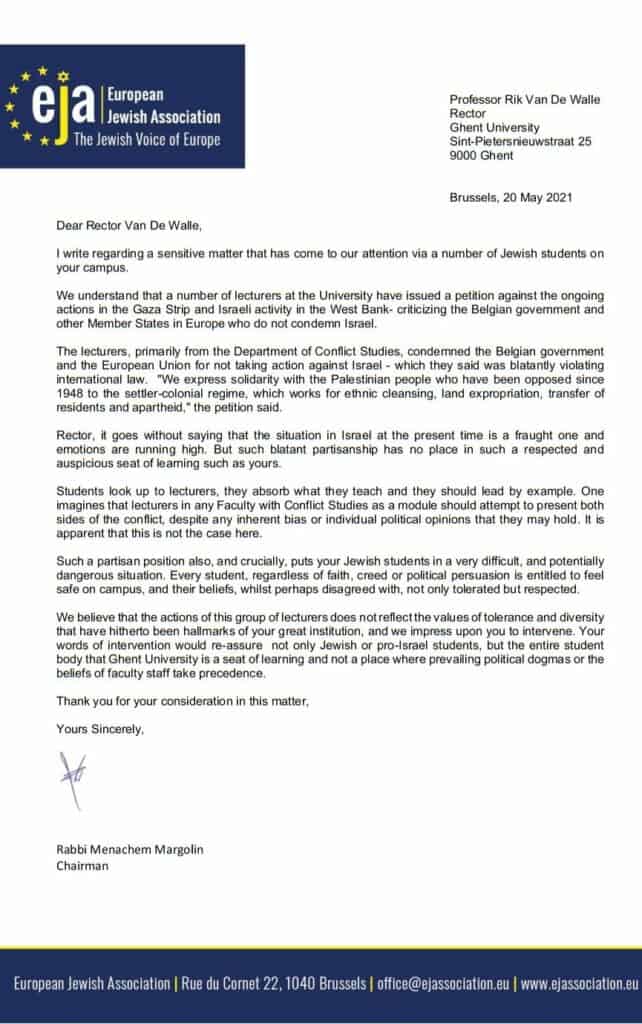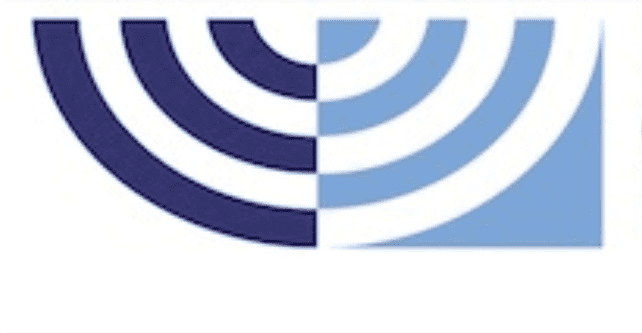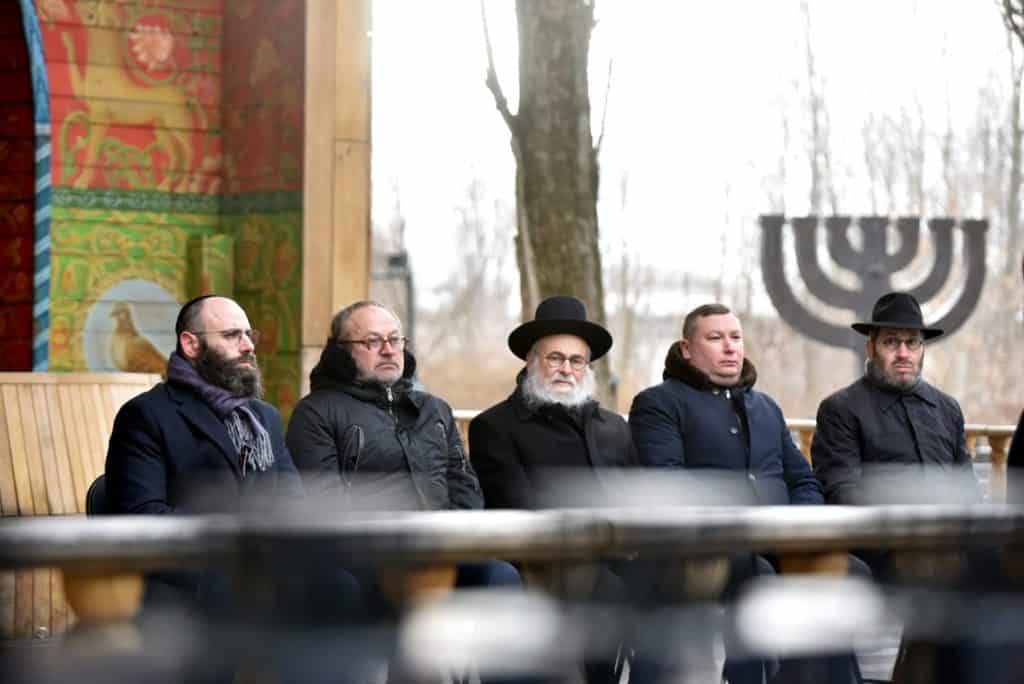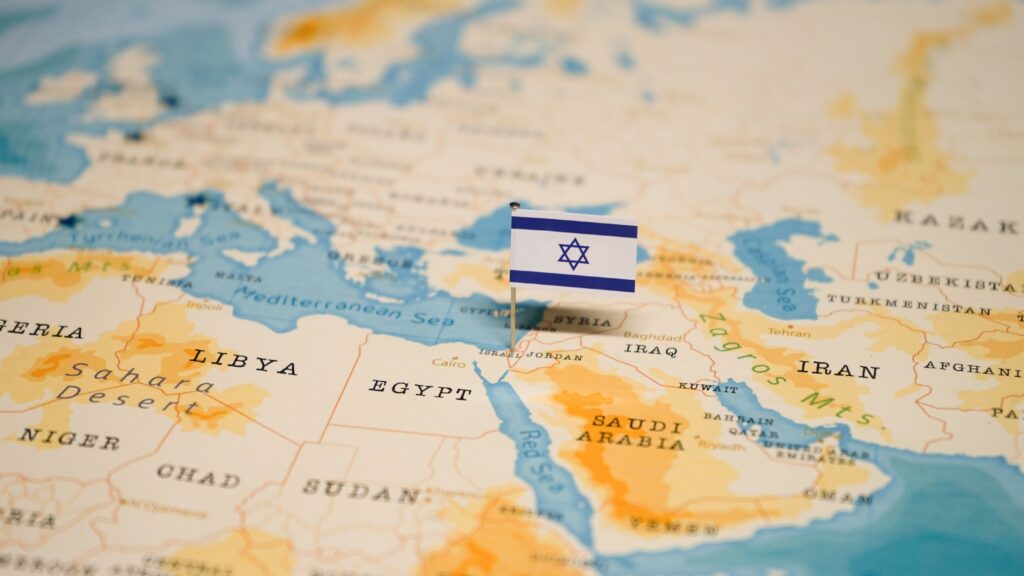This letter was sent this morning to Ghent University by Rabbi Menachem margolin following complaints by local students.


This letter was sent this morning to Ghent University by Rabbi Menachem margolin following complaints by local students.


The European Jewish Association is proud and delighted to welcome another organisation to our growing roster of partners and communities.
We have just concluded and signed a memorandum of understanding with the Jewish Community of Bratislava
Bratislava was in the past one of the most important centers of Jewish Life in Europe and has a very rich Jewish Heritage and amongst them: The Chatam Sofer Memorial and two Jewish Museums
When two dynamic and active Jewish organisations get together and agree to work closely with one another, beautiful and important things flow from this. We look forward to working for the betterment of Slovakian and European Jewry together.

For two days, September 29 and 30, 1941, 33,771 people were exterminated. More than thirty thousand of them were Jews.
A zoom press conference was dedicated on Tuesday to the 80th anniversary of the Babyn Yar massacre ahead of an event “Lessons from Babyn Yar: History, Memory and Legacy” which is jointly organised by the House of European History in Brussels and the Kiev-based Babyn Yar Holocaust Memorial Center (BYHMC).
The conference, organized in cooperation with the European Jewish Asociation, discussed lessons 80 years later, as well as unveiling new and unique tools to keep the lessons, history and memory alive, including actually putting faces and names to those murdered for the first time.
Among the speakers, French Father Patrick Desbois, founder of Yahad-In Unum and head of the scholarly council of BYHMC, stressed that Babi Yar was a criminal site where the genocide of the Jewish people took place in the center of a large city in a large country (Kiev, today Ukraine).
‘’The locals willingly aided the young fascists. The gunmen were given sandwiches and tea with little vodka in it as the mass executions lasted many hours,’’ he noted.
Father Patrick asked a practical question: where did the tons of items and valuables taken from the Jews before their execution go? ‘’It would seem that everything should be documented, but it is easier to find detailed evidence and statistics of the shootings than information about the confiscated property of those killed. It was as if the Germans were embarrassed to write about such facts.’’
He added, ‘’For me, this is another terrible evidence of the Babi Yar tragedy: human life is reduced to zero. It is only the result of statistics, nothing more. Even more terrible is that the USSR, on whose territory the tragedy took place, tried to hide the truth about Babyn Yar for a long time. Nevertheless, our generation has a goal: to find the hidden facts and restore the history of this bloody genocide.’’
“I visited Raka in Syria where there was a mass grave. Journalists came, journalists went. Perhaps in 80 years there can be a debate about what is a ‘fitting’ memorial. What is important is keeping the memory and lessons alive,’’ stressed Father Desbois.
One of the panelists, Marek Siwiec, Director of European Affairs at BYHMC, provided information about many ongoing projects, each of which can contribute to the restoration of the truth about Babyn Yar.
Colossal work has been done: out of more than 33,000 dead, 28,428 names have been identified, and essential family and personal facts have been restored. All these invaluable findings became the basis of a vast program titled “Project Names.”
‘’It brought us closer to the real life of those who were shot at Babi Yar. They say that the death of one person is a tragedy, but the death of tens of thousands is a statistic,’’ said Siwiec, who is a former member of the European Parliament.
‘’Project Names’’ allows us to turn dry statistics into pain for everyone who was left in that terrible place, who did not live, who did not love, who did not leave their continuation on earth,’’ he added.
Another project mentioned by Siwiec, “Red Dot” (Red Dot Remembrance), is unique: more than 3,000 people provided information about the WWII war crimes. This app has so far registered 2,850 sites across of Europe of the ‘Holocaust by bullets’ which enables users to see and learn what took place wherever they are.
‘’These are mass extermination sites, eyewitness accounts, evidence supported by documents, which were kept with German punctuality and pedantry throughout the war,’’ explained Siwiec.
On the Babyn Yar massacre anniversary date of 29th September, 15,000 schools in Ukraine will participate in a “lessons of the Holocaust Day”.
‘’The key word underpinning all of our activities is education. It is only through education that the tragic disasters of the past can never be repeated,” said Siwiec.
Marek Rutka, a member of the Sejm, the Polish parliament, and chairman of the parliamentary group for the commemoration of the crimes at Babyn Yar and for a Europe free from genocide and hatred, explained that members of his political party regularly visit the sites of the Shoah executions. ‘’They see heartfelt tragedies lead to politically literate conclusions about the need to talk about the Shoah on a European scale. There is no genocide without the tolerance of neighboring countries. These words can be taken as a motto for the whole debate.’’
Anton Schneerson, who contributed this article for European Jewish Press, is a Ukrainian Jew living in Germany. The Jewish community of his hometown, Dnipro, managed to build one of the world’s most prominent Holocaust museum that deeply covers the Babyn Yar tragedy.

Join us for a captivating discussion on “Israel’s fight against terror: Can it be done differently? Consequences and effects for Europe.”
Our speakers, Claude Moniquet and General Jérôme Pellistrand, will share their invaluable insights and expertise on this critical subject. It’s a unique opportunity to gain a deeper understanding of the challenges Israel faces in its battle against terrorism and how this impacts Europe.
Don’t miss this thought-provoking event that delves into a topic of global importance. Whether you are interested in security, international relations, or simply wish to broaden your knowledge, this event is not to be missed.
Stay tuned for more details and mark your calendars. We look forward to your active participation in this important discussion.
It’s a challenging time for Jewish communities in Europe. Anti-Semitism is on the rise as populism and the politics of the lowest common denominator are gaining traction. Our communities often need round the clock protection and our practices and customs such as keeping Kosher are under pressure from increasing political interference.
| Cookie | Duration | Description |
|---|---|---|
| cookielawinfo-checkbox-analytics | 11 months | This cookie is set by GDPR Cookie Consent plugin. The cookie is used to store the user consent for the cookies in the category "Analytics". |
| cookielawinfo-checkbox-functional | 11 months | The cookie is set by GDPR cookie consent to record the user consent for the cookies in the category "Functional". |
| cookielawinfo-checkbox-necessary | 11 months | This cookie is set by GDPR Cookie Consent plugin. The cookies is used to store the user consent for the cookies in the category "Necessary". |
| cookielawinfo-checkbox-others | 11 months | This cookie is set by GDPR Cookie Consent plugin. The cookie is used to store the user consent for the cookies in the category "Other. |
| cookielawinfo-checkbox-performance | 11 months | This cookie is set by GDPR Cookie Consent plugin. The cookie is used to store the user consent for the cookies in the category "Performance". |
| viewed_cookie_policy | 11 months | The cookie is set by the GDPR Cookie Consent plugin and is used to store whether or not user has consented to the use of cookies. It does not store any personal data. |